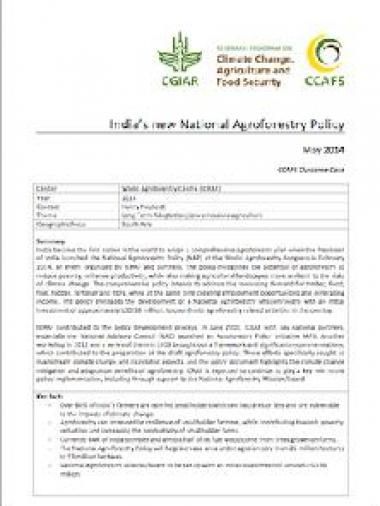India’s new National Agroforestry Policy

India became the first nation in the world to adopt a comprehensive agroforestry plan when the President of India launched the National Agroforestry Policy (NAP) at the World Agroforestry Congress in February 2014, an event organized by ICRAF and partners. The policy recognises the potential of agroforestry to reduce poverty, enhance productivity, while also making agricultural landscapes more resilient to the risks of climate change. The comprehensive policy intends to address the increasing demand for timber, food, fuel, fodder, fertiliser and fibre, while at the same time creating employment opportunities and generating income. The policy envisages the development of a National Agroforestry Mission/Board with an initial investment of approximately USD 33 million, to coordinate agroforestry related activities in the country.
ICRAF contributed to the policy development process. In June 2011, ICRAF with key national partners, especially the National Advisory Council (NAC) launched an Agroforestry Policy Initiative (API). Another workshop in 2012 and a series of them in 2013 brought out a framework and significant recommendations, which contributed to the preparation of the draft agroforestry policy. These efforts specifically sought to mainstream climate change and its related aspects, and the policy document highlights the climate change mitigation and adaptation benefits of agroforestry. ICRAF is expected to continue to play a key role in the policy implementation, including through support to the National Agroforestry Mission/Board.
Citación
CCAFS. 2014. India’s new National Agroforestry Policy. Outcome case. Copenhagen, Denmark: CGIAR Research Program on Climate Change, Agriculture and Food Security (CCAFS).